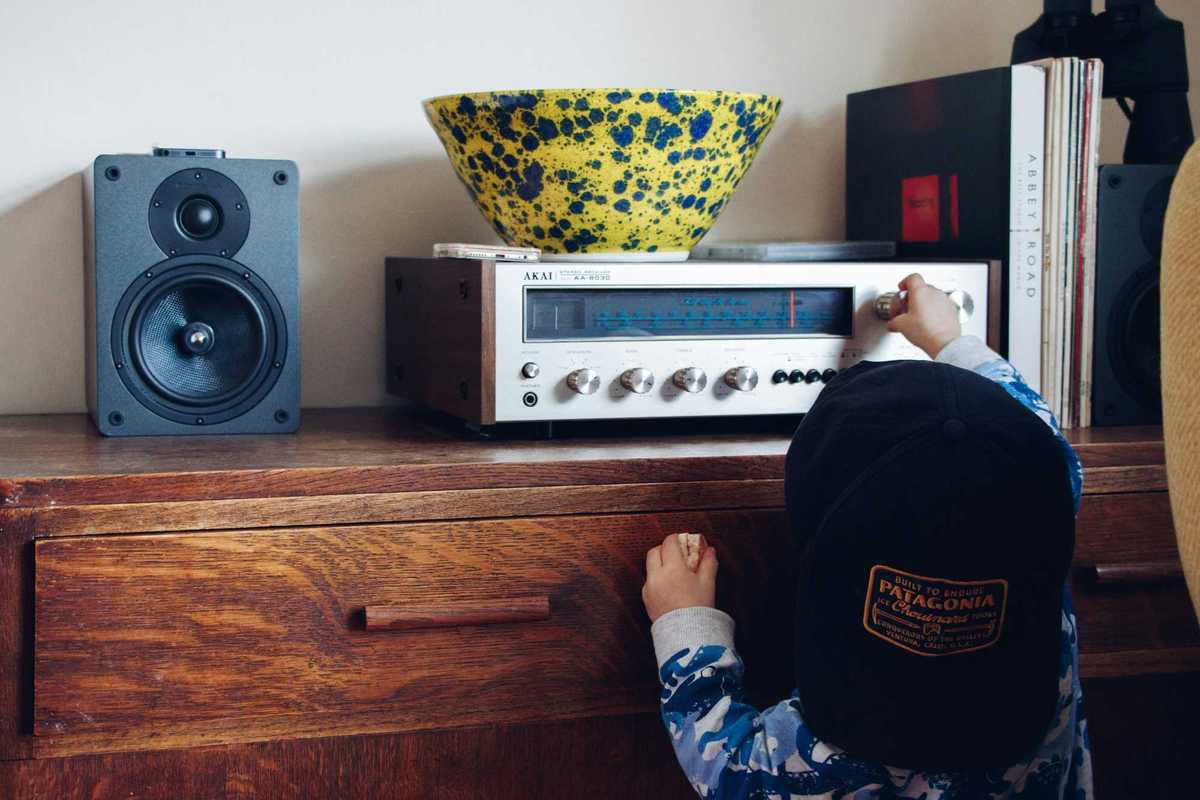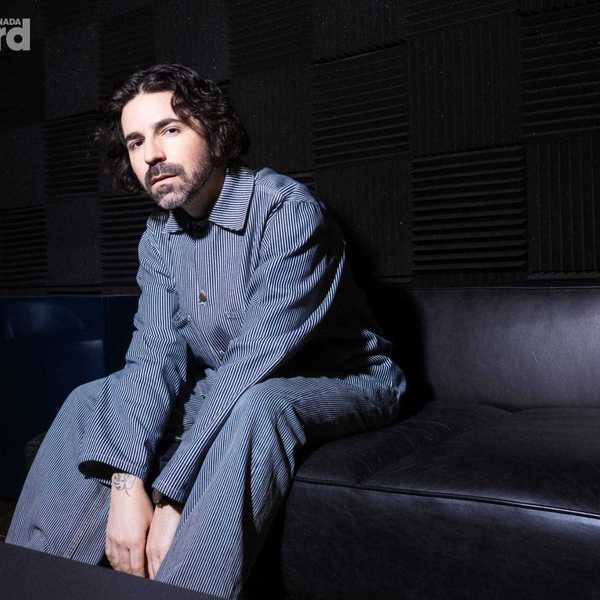Obituaries: Tributes to Supertramp's Rick Davies, Blancmange's Stephen Luscombe
This week we also acknowledge the passing of Tom Shipley of '70s folk-rock duo Brewer and Shipley and controversial Pretty Things drummer Viv Prince.

Rick Davies, leader of Supertramp, playing Wurlitzer piano at BBK Live 2010 in Bilbao, Basque Country, Spain.
Rick Davies, a founding member of and singer/keyboardist in popular progressive rock group Supertramp, died on Sept. 6, after a decade-long battle with multiple myeloma. He was 81.
His passing was confirmed by the group in a statement honouring his half century of service in the group.
“The Supertramp Partnership is very sad to announce the death of Supertramp founder Rick Davies after a long illness,” the band wrote in a statement that said Davies had been sick with the blood cancer multiple myeloma for more than a decade.
The statement continues, “As co-writer, along with partner Roger Hodgson, he was the voice and pianist behind Supertramp’s most iconic songs, leaving an indelible mark on rock music history. His soulful vocals and unmistakable touch on the Wurlitzer became the heartbeat of the bands’ sound. Beyond the stage, Rick was known for his warmth, resilience, and devotion to his wife Sue, with whom he shared over five decades. After facing serious health challenges, which kept him unable to continue touring as Supertramp, he enjoyed performing with his hometown buds as Ricky and the Rockets.”
In its obituary, Billboard reported that "Born in Swindon, England, Davies was first attracted to music after his parents gave him a record player and he became obsessed with the album Drummin’ Man by legendary jazz drummer Gene Krupa.
"After playing with a series of bands in high school and college, including Rick’s Blues (with pop singer Gilbert O’Sullivan) and the Lonely Ones, Davies put an ad in Melody Maker magazine in 1969 looking for bandmates to join him, with vocalist Roger Hodgson signing on along with guitarist Richard Palmer and drummer Keith Baker."
Veteran Canadian music journalist Martin Melhuish published an acclaimed biography of Supertramp, The Supertramp Book, in 1986. He informed Billboard Canada of the origins of the band, stressing "No 'Sam; no Supertramp. 'Sam' being the affectionate nickname given to Dutch millionaire Stanley August Miesegaes, who in 1969 offered Rick Davies the chance to form 'the band of his dreams.'
"Sam had become disillusioned with The Joint, of which Rick was a member and which he was supporting financially, after seeing them perform at London’s Marquee Club. Nonetheless, he saw great potential in Rick and told him that if he wanted to form a new group, he would fully finance the effort. History shows that Rick took full advantage of the offer and Supertramp was born."
Melhuish adds that "as I was putting the finishing touches on The Supertramp Book in the early 80s, 'Sam,' to whom the album Crime of the Century was dedicated, flew in from his home in Geneva to spend some time with me in Montreal and Toronto. He brought with him a case full of correspondence and photos from those early days including one letter to David Llewelyn, Rick’s bandmate in The Joint, explaining his decision to get behind Rick and a new musical venture. It would prove to be a missive of historical import.
"Sam wrote that 'I believe that Rick having fully assumed jazz, and not any type of jazz, but that of Duke, of a Getz or a Kenton, this together with the extraordinary sense of rhythm he undeniably has, and this again complemented by his great sense of humour that can make kids and adults laugh instead of making them look glazed, all this makes me feel that Rick really does have something to offer…'"
After signing to A&M Records, the new group released their self-titled debut album in 1970. After a few lineup changes, the prog rockers released 1971’s Indelibly Stamped, with Davies handling lead vocals on most of the tracks and sharing songwriting duties with Roger Hodgson.
Billboard notes that "It wasn’t until 1974’s Crime of the Century that the band had its first commercial breakthrough, with the album hitting No. 38 on the Billboard 200 chart and the Davies-penned single 'Bloody Well Right' running up to No. 35 on the Billboard Hot 100 singles chart. After a mis-fire with the 1975 LP Crisis? What Crisis? featuring leftovers from the previous album, the band earned its first gold record in the U.S. with 1977’s Even in the Quietest Moments… which hit No. 16 on the Billboard 200 chart and spawned the pop-leaning No. 15 Billboard pop singles chart hit 'Give a Little Bit,' with vocals by Hodgson.
"Further leaning into their pop proclivities, the band finally broke through with their landmark Grammy-nominated sixth album, Breakfast in America, which spun off a series of sing-along radio hits, including the Billboard Hot 100 No. 6 smash 'The Logical Song,' as well as 'Take the Long Way Home' (No. 10) and the bouncy Davies-written 'Goodbye Stranger' (No. 15). In keeping with previous releases, the songs included lead vocals by both men, with both also getting songwriting credits on the tunes."
Breakfast in America topped charts in the United States and Canada, won two Grammys and sold over 18 million copies.
In discussing the evolution of the Supertramp sound into a hit-making force, Melhuish gives Davies major credit. He tells Billboard Canada that "the alchemy that ultimately made Supertramp remarkable as a group had its beginnings with Rick’s early musical encounters in the '50s.
"He was initially inspired by Gene Krupa’s drumming, followed by an admiration for the boogie-woogie piano stylings of artists like Meade Lux Lewis and Fats Domino. These influences contributed to his evolution as a musician, helping to shape the signature jazz, blues and rock-influenced style that democratically aligned with Roger Hodgson’s propensity for more pop-oriented song material.
"Despite the complexity of some of his song arrangements, they were melodic and accessible often offering a glimpse of the glib, British humour that belied his image as a brooding and moody presence within the band. By the late '70s, the dynamic balance of personality and music styles between Rick and Roger, had made Supertramp a chart-topping, international success story."
After a live album, 1980’s Paris, Hodgson departed Supertramp following 1982’s …Famous Last Words... after long battles over the group’s creative direction and songwriting royalties, leaving Davies as the lead man for 1985’s Brother Where You Bound.
That collection featured one of the group’s final chart hits, the Hot 100 No. 28-charter “Cannonball," but the new wave-inflected 1987 album Free as a Bird was their first LP not to make it into the top 100 on the Billboard album charts.
The Davies-fronted Supertramp would release two more albums, 1997’s Some Things Never Change and 2002 swan song, Slow Motion, and continue to tour until 2012. The group performed for the last time in Madrid in 2012.
While they announced a European tour in 2015, it was cancelled due to Davies’ treatment for multiple myeloma.
Amongst those paying tribute to Davies on Facebook was noted Canadian singer-songwriter Lindy Vopnfjörð. "RIP Rick Davies.A while back, I had the pleasure of meeting him. I was young and recently signed to a label, and tasked with opening for Supertramp in 1998 on their eastern Canadian tour dates.
"It was at the arena in Montreal when I was so nervous to play solo acoustic for 14,000 people. Just me and Supertramp! I found Rick in catering. He had just sat down to eat his meal, with the crew. I asked him if he had any advice he could give me since I was so nervous. He thought about it for a few seconds and said, 'Yeah, take your wallet on stage with you.' I laughed. He put me at ease and told me I'll be alright. My record label was happy with my set and said it went over surprisingly well. I'm grateful for Rick's kindness in that moment and grateful for the amazing opportunity that I will never forget."
Stephen Luscombe, a keyboardist and one-half of popular British synth-pop duo Blancmange, has died, at age 70.
His former bandmate Neil Arthur paid tribute to the musician on Instagram on Sept. 14.
A keyboardist and songwriter, Luscombe teamed up with vocalist and songwriter Neil Arthur in Harrow, London, in 1979. They made a mark in the early 1980s, releasing four UK top-20 singles: "Living on the Ceiling," "Waves," "Blind Vision" and "Don't Tell Me".
Blancmange released three studio albums during that decade: Happy Families (1982), Mange Tout (1984) and Believe You Me (1985).
They broke up in 1986 but reformed in the late 2000s, and in 2011 released their fourth studio album Blanc Burn. Luscombe left the band shortly after, due to ill health that included an abdominal aortic aneurysm.
Arthur alone has continued to perform under the Blancmange name, releasing new studio albums at a prolific rate. He was also involved in three collaborative albums as Fader (with Benge) and Near Future (with Jez Bernholz).
Luscombe previously revealed his influences and interests included the avant-garde likes of Brian Eno, Can, Captain Beefheart and Frank Zappa. He released an album of Indian-influenced music, New Demons, under the name West India Company, in 1989.
Former Canadian record label executive Peter Hardman posted this tribute on Facebook: "Sad to hear of Stephen Luscombe’s passing yesterday. Had the pleasure of releasing Blancmange’s records on the London label back in the day, and I have a wonderful memory of going to see The Fall perform I Am Kurious Oranj at Sadler’s Wells theatre in London, then popping into a pub a few doors down after the performance only to see and enjoy a great time with Stephen and band partner Neil Arthur there."
Tom Shipley, an American folk-rock singer-songwriter best known for the hit “One Toke Over the Line," recorded by the duo Brewer and Shipley, died on Aug. 24, at the age of 84.
In its obituary, The Kansas City Star reported that "Shipley, an Ohio native, teamed up with Mike Brewer in the late 1960s in Kansas City and became stars with 'One Toke Over the Line' in 1970. It reached No. 10 on the Billboard Hot 100 chart.
"Shipley told The Star in 2021 that they had written the song 'as a joke to make our friends laugh.' But when he and Brewer opened for Melanie at New York’s Carnegie Hall in 1970, they ran out of songs to play as encores, so they broke out 'One toke over the line, sweet Jesus …' 'The audience went crazy,' Shipley said. 'And the record company president was there. And he said, ‘That’s a single.’ We go, ‘What? Are you crazy?’ But we recorded it, and, of course, it was a hit.'"
The duo was known for their intricate guitar work, vocal harmonies, and socially conscious lyrics reflective of the time. Aside from "One Toke Over The Line," they had two other singles on the Billboard charts: "Tarkio Road" (1970) and "Shake Off the Demon" (1971).
Their debut album, Down In L.A. was released in 1968 on A&M Records, followed by four albums on Kama Sutra and two on Capitol in their '70s heyday. They broke up in the late '70s, but reunited and released three albums in the 1990s.
The Kansas City Star notes that "They continued to perform, both separately and together, usually in the Midwest United States."Brewer & Shipley also were instrumental in the formation of Kansas City’s Good Karma Productions, which produced regional concerts. The duo was in the first class of inductees into the Kansas Music Hall of Fame in 2005 and frequently performed in the area until the pandemic hit in 2020.
Michael Brewer died Dec. 17, 2024, at 80.
Viv (Vivian Martin) Prince, the colourful and celebrated drummer in British Invasion band The Pretty Things in their early days, has died at the age of 84. On Sept. 11, it was announced that Prince had died earlier that week, at his home in Portugal.
In its obituary, The Independent reported that "Known for his rowdy and eccentric on-stage behaviour, Prince enjoyed a controversial 18-month stint in the rock group from 1964 to 1965, and is said to have influenced Keith Moon, The Who’s legendary drummer.
"News of Prince’s death was shared on Instagram by the White Stripes frontman Jack White, who described the late musician as 'wild and full of abandon.'" White added that "He was an inspired and eccentric rock and roller, and maybe I’ll have to put together a team to work on a documentary about this man one day."
Born in Loughborough, England, in 1941, Prince started as a jazz drummer, performing in several local groups throughout the early 1960s. He also worked as a session musician and earned a burgeoning reputation for his distinctive and charismatic drumming style.
The Independent writes that "Having joined the Pretty Things in 1964, Prince recorded two albums with the counter-cultural rock group: 1965’sThe Pretty Things and Get the Picture? The drummer’s unruly antics became the focus of much of the media coverage of the band. He would engage in brazen pranks onstage, such as laying carpeting during other artists’ performances. Prince was expelled from the band towards the end of 1965. He was replaced by Skip Alan."Prince made major headlines with his antics while on a New Zealand tour with The Pretty Things in Aug. 1965. He reportedly paraded around in a leopard-skin pillbox hat, carrying around a dead crayfish on a string and setting fires onstage. Following an altercation with the crew, he was thrown off the plane that was taking the band home after the tour, and had to make his own way back to England.
That New Zealand tour was so notorious it spawned a short book, Don’t Bring Me Down … Under: The Pretty Things in New Zealand, 1965. Read more about that mayhem Down Under in Audioculture here.
In the years after his work with Pretty Things, Prince performed with artists such as the Honeycombs, the Who, and Hawkwind, and recorded with artists including Chris Barber. During the 1980s, Prince returned to Loughborough for a while, playing with local soul band Sugar Shack.
Later in life, he reportedly joined the Hells Angels Motorcycle Club, only to be ejected for misbehaviour.
In 1999, the Pretty Things recorded a song called “Vivian Prince” as a tribute to their former bandmate, included on the album Rage Before Beauty.
For the past two decades, Prince lived near Faro, Portugal.

















